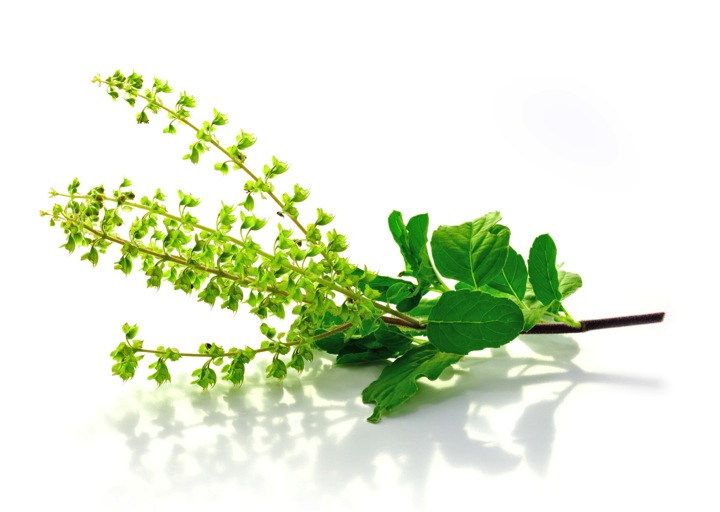Also known as basil, Tulsi has been cultivated and has been used for thousands of years as preventive medicine all over the world and for many ailments.
In fact, it is known that this amazing plant has so many excellent properties that it is also worshipped in many cultures and that’s why it is also known as Holy Basil.
It comes from the Lamiaceae family and has a host of aromatic properties, therefore is used as a culinary herb along with a host of others such as mint, rosemary, thyme, sage, lavender, marjoram, hyssop and oregano. It is known to be native to India and had been cultivated here for both religious as well as medicinal purposes for over the years. There are predominantly two types of the plan found naturally, one with green leaves and the other with purple leaves.
Tulsi Benefits
In Ayurveda, Tulsi has played a significant role with its many healing properties. It is known to be a stress reliever and also promotes longevity.
Tulsi extracts are often prescribed for a host of different ailments and can be consumed in a number of forms for maximum benefits. They can be used as fresh leaves, and they can be dried and used as a powder, used as herbal tea, or also mixed with ghee. Extracts of these leaves are used in various skincare products as well.
Tulsi Remedies
In case you are wondering, which ailments tulsi can be used to treat, they are listed below:
Asthma
Tulsi can help relieve congestion and helps make breathing easier. It contains a host of phytonutrients, essential oils and minerals that help cure some of the underlying causes of the disease.
A decoction of tulsi leaves, fresh ginger and honey can help you find relief from asthma, bronchitis, cough and cold.
Stress
Vitamin C and antioxidants found in tulsi help minimize the damage that free radicals cause in the body. They help soothe the nerves, lower blood pressure and also help reduce inflammation, thus reducing levels of stress. Chewing 10 – 12 leaves of Tulsi can help you achieve this.
Oral care
Tulsi serves as an excellent oral disinfectant and mouth freshener as it is known to destroy all the harmful germs and bacteria that tend to build up in one’s mouth. It is also known to provide an effective cure for ulcers and inhibits the growth of oral cancer, which could have been caused by chewing tobacco.
Boil 1 tsp of tulsi leaves and half a teaspoon of powdered cinnamon in one cup of water and use it as a mouthwash.
Skincare
Camphene found in tulsi is known to have a cooling and soothing effect on one’s skin. Taking a bath every day with a decoction of tulsi mixed with the water you bathe in and washing your face with it too can help improve the condition of your skin significantly. Apply the tulsi paste to the affected area on your skin for best results. Consuming these leaves also can have excellent effects on your skin. Apply the leaves externally on your skin to remove the excess oil for good results.
Headaches
Headaches that have been caused by sinus pressure, migraines, cough, high blood pressure or cold can be cured using tulsi. The camphene, cineol, carvacrol and methyl chavicol content of tulsi are known to have anti congestive, sedative, disinfectant and analgesic properties that help keep the discomfort under control. For best results, a paste of sandalwood and tulsi should be applied to your forehead before you fall asleep.
Make an appointment with Hermeet Singh Suri (HOM, BSc., RHN, Epigeneticist) at The Homeopathic Plus Centre and learn how you can use tulsi to the best of its abilities to get better and stay healthy.


Recent Comments